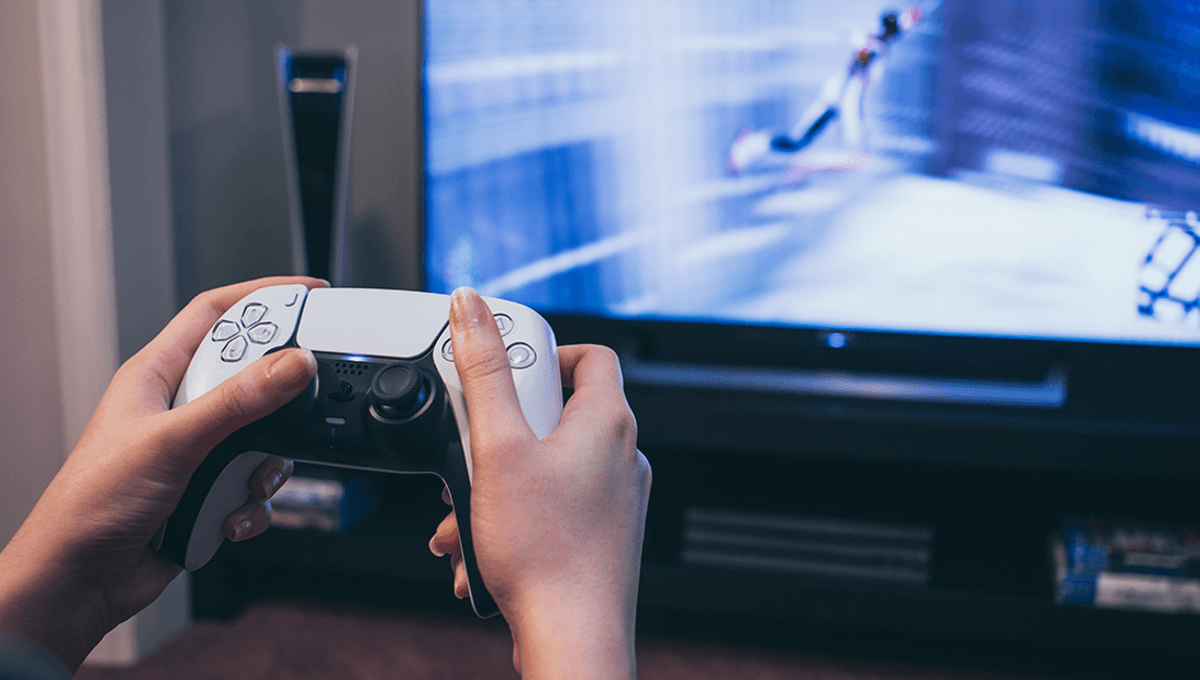
There are two great mysteries at the heart of console gaming: Why are there people out there who don’t invert their controllers? And why on Earth would the makers of such games label this perverse layout as “normal”?
For those of you who aren’t gamers, a brief explanation. The so-called normal layout of a controller is when you push the right analog stick up and your view in the game looks up. For the inverted mode, pushing up with the same stick will make you look down, as God intended.
A simple explanation of the two controller styles.
Unsurprisingly, there isn’t a lot of science out there that tells us why it is that some people like to invert and some people are complete “wrong’uns”, preferring to play on normal mode. Could it be something about the way different people picture spaces? Or perhaps it has something to do with another sensory process. Or as many people on the Internet have suggested, it merely has to do with the games we learned to play on.
“Learned how to play inverted in TimeSplitters 2,” one Redditor wrote on the topic, with another adding, “That is the single reason why I still play inverted to this day! I thought this was way too specific of an experience to discover I share it with others”. From the same era, Goldeneye and Perfect Dark set the controls to inverted by default, and it’s possible this could account for a lot of people learning the “correct” way to game.
Thanks to the COVID-19 pandemic (cheers, disease!) we now know a little more. Having been forced to close down their usual experiments due to the challenges of COVID-19, one team led by Dr Jennifer Corbett, then co-head of the Visual Perception and Attention Lab at Brunel University London, looked into the matter.
Following an interview with the Guardian in 2020, the debate raged with her colleagues, and Corbett and her colleague Dr Jaap Munneke decided to investigate what’s going on. As well as being interested in the topic, they thought that the study of it could have applications elsewhere.
“Beyond user experience factors like immersion and presence, inversion preferences may also be linked to differences in how individuals rely on visual information to perceive ‘upright,’ or the direction of the pull of gravity,” the team explains in their new paper.
“We base our perceptions of upright on cardinal lines inherent in the visual environment to the extent that we treat even a single horizontal line as the ‘horizon,’ and evaluate the orientation of surrounding objects with respect to this simple reference. When the visual environment is tilted, we misperceive upright in the direction indicated by visual references even when our bodies are aligned with the pull of gravity.”
The team provided volunteers with tasks to mentally rotate shapes and identify matching ones, perspective tasks to assess their spatial awareness, and a task to judge the tilt of objects against differently oriented backgrounds, and attempted to measure how much they relied on contextual and body cues when they make spatial judgments. As well as this, the gamers were given a questionnaire asking about their own gaming history, including open-ended questions about use of inversion vs. normal controller use.
Gamers tended to put their preferences down to playing specific games, or the systems they game on, but when the team looked at the data from the experiments they found that this had little impact on their choice to invert or not invert. It was more to do with how they perceive spaces.
“Many participants credited previous experiences, such as playing Flight Simulator, using a specific gaming system, or their mouse/trackpad scrolling preferences as reasons for their preferences. Many also reported that their preferences had changed over time, consistent with previous reports that trackpad scrolling preferences changed with technological developments, and the switch to preferring inverted controls noted for expert versus novice laparoscopic surgeons,” the team explained.
“However, none of these factors had any predictive value, underscoring the need for further empirical investigations to measure behavioral effects which may not be consciously obvious to, or even reportable by users.”
The team did find some notable differences between those who invert and those who don’t. People who were faster at mental rotation and better at overcoming conflicting visual clues were more likely to prefer playing with a “normal” controller.
As well as this they found that the “Simon Effect” was a predicting factor. This is the phenomenon where responses are faster and more accurate when the stimulus (e.g. action on screen) is on the same side as the response (e.g. using the buttons on the right hand side of the controller). Those who were better at overcoming the Simon Effect (i.e. performing the task well even when stimulus and response were not on the same side) were also less likely to prefer inverted controls.
“None of the reasons people gave us [for their controller preferences] had anything to do with whether they actually inverted,” Corbett told the Guardian recently. “It turns out the most predictive out of all the factors we measured was how quickly gamers could mentally rotate things and overcome the Simon effect. The faster they were, the less likely they were to invert. People who said they sometimes inverted were by far the slowest on these tasks.”
Before the “normals” start believing that they are superior gamers, that is not the case.
“Though they tended to be faster,” Corbett added, “they didn’t get the correct answer more than inverters who were actually slightly more accurate.”
The study is published in Cognitive Research: Principles and Implications.
Source Link: Scientists Investigated Why People Invert Their Controls, And It's Not What They Think